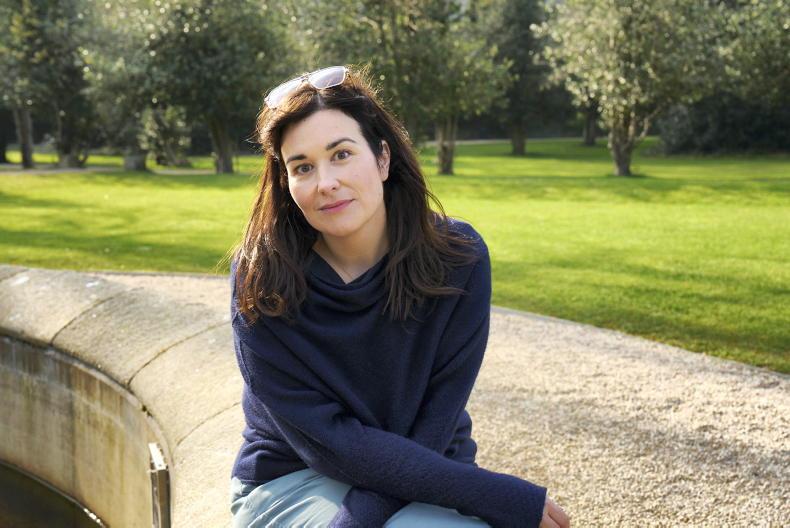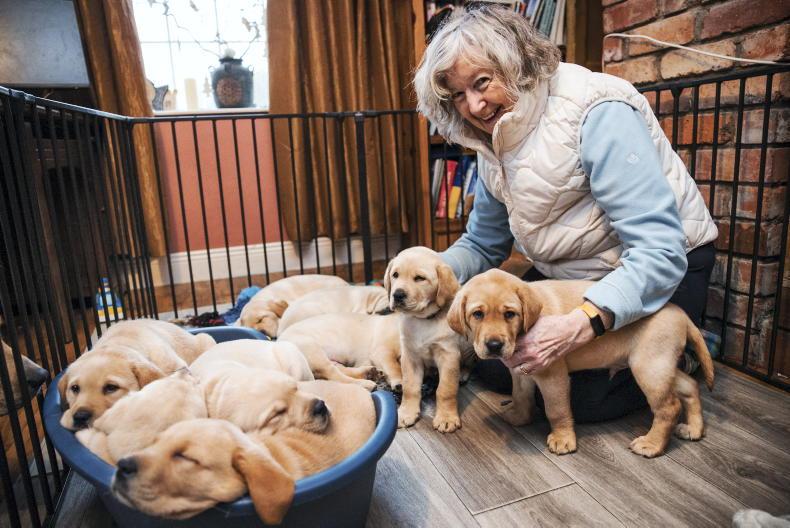If there is one addiction that frightens me more than any other, it’s gambling. While other addictions may be as damaging, they will typically take you some time to go from the start to rock bottom. Not so with gambling. As a therapist, I have seen people lose their business, their house, and their car – all in one night.
Gambling has now taken over as the fastest-growing addiction in Ireland. In 2019 alone, Irish people placed over €10bn in bets. And it’s a problem that is only getting worse.
Internet gambling is like a bookie shop on steroids. A survey done in 2018 found that 25% of male teenagers are gambling, mostly online. We suspect that addiction to the adrenaline rush from online computer games is leading many kids to seek that rush from gambling.
A teenager recently told me that he and his friends viewed drugs and alcohol as “soooo 20th century”. His peer group are all highly intelligent kids and in the top classes in their school. Unfortunately, their “intelligence” has convinced them that they can beat the odds, taking them down a rabbit hole from which few will ever escape.
A survey done in 2018 found that 25% of male teenagers are gambling, mostly online
Further reports have shown that the COVID-19 crisis is greatly exacerbating internet gambling addiction. Isolation fuels gambling addictions, especially among women. There are several reasons for this.
Internet gambling is said to be more appealing to women, since it doesn’t involve having to go to a betting shop. The internet offers 24/7 access to gambling and can provide anonymity.
This has become so serious that a group of MPs in the UK have written to the government calling for action to be taken. Even the betting and gaming council has had to step in to stop betting firms from exploiting vulnerable people from the increased risk of addiction, as a result of having to stay at home during lockdown.
Because betting on football has stopped and with horse racing only returning this week, people are turning to highly dangerous slot machine type gambling as a way of relieving boredom and possibly trying to “gamble” their way out of rising debts. These forms of gambling are highly addictive and dangerous. With slots, the game is gone, but the odds have not.
Even the betting and gaming council has had to step in to stop betting firms from exploiting vulnerable people
Men are reportedly more attracted towards gambling that involves skill and strategy, games like horse racing or poker. Women, on the other hand, are more attracted to games of chance. Hence, the bigger danger of online slot betting for women.
Mini online casinos are designed by experts in the psychology of addiction. They know that people who are in a bad space in their head will be attracted to anything that will provide them with short-term feel-good experiences. They also know that most of us will rapidly lose our ability to look long-term if we are kept focused on these short-term pleasure “hits”. By including things like controversial VIP schemes that reward heavy losses, they use good old-fashioned psychology to entrap their victim.
From flutter to addiction
Many of us like a flutter and nearly all of us like to join in with a sweepstake for the Grand National every year. However, compulsive gambling has very little to do with just having a few bets as a hobby.
If you want to know the difference between betting and compulsive gambling, then look no further than what happens when you cannot gamble. If you don’t have a gambling problem, your brain will very quickly distract itself with something else.
If you have a gambling addiction, the longer you are unable to gamble, the more obsessed you will become with getting back to it
However, if you have a gambling addiction, the longer you are unable to gamble, the more obsessed you will become with getting back to it. Everything else in your life will become irrelevant. Your whole focus will go into finding a way of getting back to gambling.
The problem with gambling, as with all addictions, is that it does exactly what it says on the tin. The pleasure sensors in our brain react like a kid in a sweetshop to the feeling of immediate gain and risk that can be found in casinos.
At the start, it’s all bright lights, excitement and sense of achievement. When you win, you get an adrenaline rush. You convince yourself that if little wins feel this good, then big wins must feel so much better.
Gambling became an important part of my life. Eventually it became the most important part
Unfortunately, this thinking then triggers a process called “intermittent reinforcement”. When we play, we only win occasionally. By playing more and more, we train our brains to believe that if I haven’t won this time, then the win will be after the next bet. We only need a small win every 20 or so times to keep this “Groundhog Day” effect going. And down the rabbit hole we go.
Compulsive gambling is an illness, not a series of “voluntary” bets. Very quickly, our brain hot-wires itself into compelling us to place bet after bet. We are powerless to stop it.
Soon, we become like a bullock stuck in a ditch - the more we struggle, the deeper we get stuck. Our brains can only see the illusive win. Or as one addict told me: “Gambling became an important part of my life. Eventually it became the most important part. By the end, it was the only important part. I was totally blind to how gambling was affecting my life, my family and my career. It was all about getting that big win.”
Is there anything we can do about it?
Developing an addiction is like getting into a lift on the 20th floor. The lift is only going one way and that is down, but it stops at each floor. We don’t have to go to the basement before we get off, we can get off at any floor we want. However, be assured, the lift is never going to go up again.
Admitting your powerlessness over your addiction opens up a pathway to achieving everything that you were trying to achieve through your gambling addiction
Understanding this is at the very foundation of all addiction recovery. None of us will make the changes we need as long as we think there is any way we can make our addiction work for us.
Until we come to the realisation that there is absolutely no way to control our gambling, we will never be willing to go through the pain of change necessary to stop.
However, out of breakdowns come breakthroughs. Admitting your powerlessness over your addiction opens up a pathway to achieving everything that you were trying to achieve through your gambling addiction, but without having to gamble.
You alone can do it, but you can’t do it alone. While the process of recovery is very straightforward, it’s impossible to navigate through on your own. Many who have tried to stop on their own through “white-knuckling” it, find that the pain of stopping does not go away until they gamble again.
So, if you want to stop and find recovery, you need to reach out to other recovering gamblers who are working their own recovery programmes. You will find these real winners at www.gamblersanonymous.ie.
Gambling is not the problem. Gambling is how you are trying to deal with the problem
Gambling is not the problem. Gambling is how you are trying to deal with the problem. Similarly, stopping gambling only gets you to the starting gate of recovery.
Understanding the true nature of compulsive gambling and why you gambled is where you will find true happiness and a life without needing to gamble or “white-knuckle” your way through life.
The good news is that in recovery you will get your feelings back. The bad news is that you will also get your feelings back. However, by a simple combination of professional help and a recovery programme, you can gradually disentangle the mess that your life has become. Repairing relationships with both yourself and your family, one day at a time.
What to do if you believe
your partner is gambling
If you suspect your partner is gambling compulsively, it is vital that you act now. Most people feel they must be able to prove it before confronting it. However, it is better to risk losing an argument than to risk losing your house.
Start by saying you are not convinced that there is a problem, but that you need to be convinced that there isn’t.
All addicts, when confronted, will go to extreme lengths that they are right and you are wrong, or that it’s your fault that they are the way they are. So use your common sense. Follow the money.
The gambler may be powerless over gambling. However, you are powerless over the gambler. Therefore, your response must be guided by the four Cs:
I didn’t cause this problem.I can’t control it. I can’t cure it. I can’t change my partner. Having accepted this, go into survival mode. With other addictions you can let the person go. With gambling, they will drag you down with them, especially if you are married or have joint debts/mortgages.
Get legal advice, check bank accounts/statements. Hidden credit cards have to be paid from somewhere so follow the money trail. All addicts will tell you that during their addiction, their deviousness was legendary. Talk in confidence to your bank manager. Go to your online banking and watch for any suspicious activity.
This will provide a breathing space until you can figure out what to do next. Remember, you have been as damaged by the addiction as they have. Gam Anon (www.gamanon.org ) is a programme for people who have been affected by someone else’s gambling
As with every recovery programme, you will meet people who are/ have been where you are. Here, you will find answers to both how you have ended up in the hole you are in and what you need to do to dig yourself out. But whatever you do, don’t stay on the lift hoping it will go up again. It won’t.
Read more
Social cocooning - the new challenge facing rural Ireland
Enda Murphy: keep the plane flying
If there is one addiction that frightens me more than any other, it’s gambling. While other addictions may be as damaging, they will typically take you some time to go from the start to rock bottom. Not so with gambling. As a therapist, I have seen people lose their business, their house, and their car – all in one night.
Gambling has now taken over as the fastest-growing addiction in Ireland. In 2019 alone, Irish people placed over €10bn in bets. And it’s a problem that is only getting worse.
Internet gambling is like a bookie shop on steroids. A survey done in 2018 found that 25% of male teenagers are gambling, mostly online. We suspect that addiction to the adrenaline rush from online computer games is leading many kids to seek that rush from gambling.
A teenager recently told me that he and his friends viewed drugs and alcohol as “soooo 20th century”. His peer group are all highly intelligent kids and in the top classes in their school. Unfortunately, their “intelligence” has convinced them that they can beat the odds, taking them down a rabbit hole from which few will ever escape.
A survey done in 2018 found that 25% of male teenagers are gambling, mostly online
Further reports have shown that the COVID-19 crisis is greatly exacerbating internet gambling addiction. Isolation fuels gambling addictions, especially among women. There are several reasons for this.
Internet gambling is said to be more appealing to women, since it doesn’t involve having to go to a betting shop. The internet offers 24/7 access to gambling and can provide anonymity.
This has become so serious that a group of MPs in the UK have written to the government calling for action to be taken. Even the betting and gaming council has had to step in to stop betting firms from exploiting vulnerable people from the increased risk of addiction, as a result of having to stay at home during lockdown.
Because betting on football has stopped and with horse racing only returning this week, people are turning to highly dangerous slot machine type gambling as a way of relieving boredom and possibly trying to “gamble” their way out of rising debts. These forms of gambling are highly addictive and dangerous. With slots, the game is gone, but the odds have not.
Even the betting and gaming council has had to step in to stop betting firms from exploiting vulnerable people
Men are reportedly more attracted towards gambling that involves skill and strategy, games like horse racing or poker. Women, on the other hand, are more attracted to games of chance. Hence, the bigger danger of online slot betting for women.
Mini online casinos are designed by experts in the psychology of addiction. They know that people who are in a bad space in their head will be attracted to anything that will provide them with short-term feel-good experiences. They also know that most of us will rapidly lose our ability to look long-term if we are kept focused on these short-term pleasure “hits”. By including things like controversial VIP schemes that reward heavy losses, they use good old-fashioned psychology to entrap their victim.
From flutter to addiction
Many of us like a flutter and nearly all of us like to join in with a sweepstake for the Grand National every year. However, compulsive gambling has very little to do with just having a few bets as a hobby.
If you want to know the difference between betting and compulsive gambling, then look no further than what happens when you cannot gamble. If you don’t have a gambling problem, your brain will very quickly distract itself with something else.
If you have a gambling addiction, the longer you are unable to gamble, the more obsessed you will become with getting back to it
However, if you have a gambling addiction, the longer you are unable to gamble, the more obsessed you will become with getting back to it. Everything else in your life will become irrelevant. Your whole focus will go into finding a way of getting back to gambling.
The problem with gambling, as with all addictions, is that it does exactly what it says on the tin. The pleasure sensors in our brain react like a kid in a sweetshop to the feeling of immediate gain and risk that can be found in casinos.
At the start, it’s all bright lights, excitement and sense of achievement. When you win, you get an adrenaline rush. You convince yourself that if little wins feel this good, then big wins must feel so much better.
Gambling became an important part of my life. Eventually it became the most important part
Unfortunately, this thinking then triggers a process called “intermittent reinforcement”. When we play, we only win occasionally. By playing more and more, we train our brains to believe that if I haven’t won this time, then the win will be after the next bet. We only need a small win every 20 or so times to keep this “Groundhog Day” effect going. And down the rabbit hole we go.
Compulsive gambling is an illness, not a series of “voluntary” bets. Very quickly, our brain hot-wires itself into compelling us to place bet after bet. We are powerless to stop it.
Soon, we become like a bullock stuck in a ditch - the more we struggle, the deeper we get stuck. Our brains can only see the illusive win. Or as one addict told me: “Gambling became an important part of my life. Eventually it became the most important part. By the end, it was the only important part. I was totally blind to how gambling was affecting my life, my family and my career. It was all about getting that big win.”
Is there anything we can do about it?
Developing an addiction is like getting into a lift on the 20th floor. The lift is only going one way and that is down, but it stops at each floor. We don’t have to go to the basement before we get off, we can get off at any floor we want. However, be assured, the lift is never going to go up again.
Admitting your powerlessness over your addiction opens up a pathway to achieving everything that you were trying to achieve through your gambling addiction
Understanding this is at the very foundation of all addiction recovery. None of us will make the changes we need as long as we think there is any way we can make our addiction work for us.
Until we come to the realisation that there is absolutely no way to control our gambling, we will never be willing to go through the pain of change necessary to stop.
However, out of breakdowns come breakthroughs. Admitting your powerlessness over your addiction opens up a pathway to achieving everything that you were trying to achieve through your gambling addiction, but without having to gamble.
You alone can do it, but you can’t do it alone. While the process of recovery is very straightforward, it’s impossible to navigate through on your own. Many who have tried to stop on their own through “white-knuckling” it, find that the pain of stopping does not go away until they gamble again.
So, if you want to stop and find recovery, you need to reach out to other recovering gamblers who are working their own recovery programmes. You will find these real winners at www.gamblersanonymous.ie.
Gambling is not the problem. Gambling is how you are trying to deal with the problem
Gambling is not the problem. Gambling is how you are trying to deal with the problem. Similarly, stopping gambling only gets you to the starting gate of recovery.
Understanding the true nature of compulsive gambling and why you gambled is where you will find true happiness and a life without needing to gamble or “white-knuckle” your way through life.
The good news is that in recovery you will get your feelings back. The bad news is that you will also get your feelings back. However, by a simple combination of professional help and a recovery programme, you can gradually disentangle the mess that your life has become. Repairing relationships with both yourself and your family, one day at a time.
What to do if you believe
your partner is gambling
If you suspect your partner is gambling compulsively, it is vital that you act now. Most people feel they must be able to prove it before confronting it. However, it is better to risk losing an argument than to risk losing your house.
Start by saying you are not convinced that there is a problem, but that you need to be convinced that there isn’t.
All addicts, when confronted, will go to extreme lengths that they are right and you are wrong, or that it’s your fault that they are the way they are. So use your common sense. Follow the money.
The gambler may be powerless over gambling. However, you are powerless over the gambler. Therefore, your response must be guided by the four Cs:
I didn’t cause this problem.I can’t control it. I can’t cure it. I can’t change my partner. Having accepted this, go into survival mode. With other addictions you can let the person go. With gambling, they will drag you down with them, especially if you are married or have joint debts/mortgages.
Get legal advice, check bank accounts/statements. Hidden credit cards have to be paid from somewhere so follow the money trail. All addicts will tell you that during their addiction, their deviousness was legendary. Talk in confidence to your bank manager. Go to your online banking and watch for any suspicious activity.
This will provide a breathing space until you can figure out what to do next. Remember, you have been as damaged by the addiction as they have. Gam Anon (www.gamanon.org ) is a programme for people who have been affected by someone else’s gambling
As with every recovery programme, you will meet people who are/ have been where you are. Here, you will find answers to both how you have ended up in the hole you are in and what you need to do to dig yourself out. But whatever you do, don’t stay on the lift hoping it will go up again. It won’t.
Read more
Social cocooning - the new challenge facing rural Ireland
Enda Murphy: keep the plane flying









SHARING OPTIONS